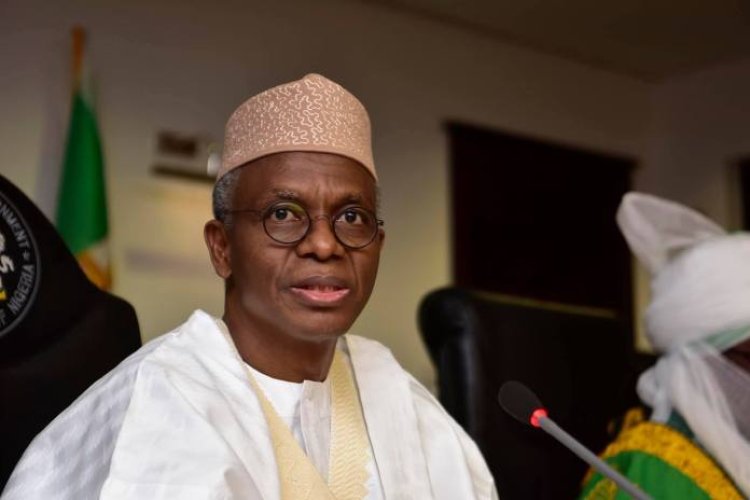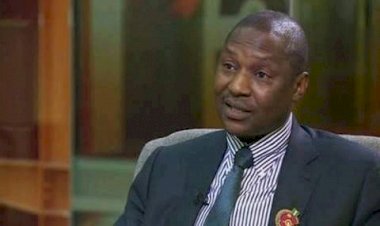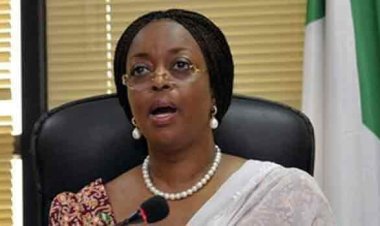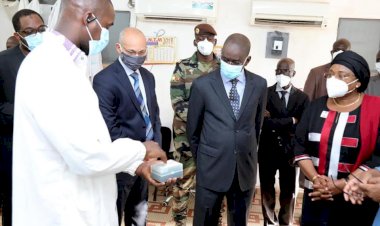Kaduna govt donates N100m to Persons With Disabilities

Aisha Muhammad, Kaduna State Coordinator of Sustainable Development Goals, SDGs, has pledged to continue pushing for timely release of N100m donated to People With Disabilities, PWDs, by the state government.
She made the commitment while speaking to NAN on the sideline of the closing of a four-day maiden Voluntary Local Review, VLR, workshop to secure stakeholders’ commitment and output on the delivery of SGDs in Kaduna.
The VLR is a process through which sub-national governments assess and document progress made in achieving the global goals..
It is an analysis of the SDGs at sub national level for a specific local context.
The VLR workshop, supported by the United Nations Development Partners, UNDP, and UNICEF, drew participants and stakeholders from the state and federal MDAs, paramilitary organisations and others.
Mr Muhammad said that the N100m donations to the PWDs by the state government was to enhance their welfare and livelihood.
“PWDs are inclusive, they are not discriminated, our good offfice will continue pushing for the N100m to be given to them as donated by the state government.”
She said there were some administrative reasons behind the delay in releasing the fund.
Mr Muhammad noted that the Kaduna Planning and Budget Commission, PBC, responsible for fund releases, would ensure that the money was released to the Ministry of Finance for disbursement to the PWDs.
“We want the PWDs to kick start the implementation of their commitment in reducing the number of beggars in the state,” she said.
She stated that the Kaduna State Government had, however, empowered many of the PWDs with skills and trades.
“There are a lot of plans made for the N100m; we will therefore do our best to make sure they get the money and use it for the purpose they said they would use it for,” she said.
Mrs Muhammad explained that the gesture by the government was in line with the number 10 goal of the SDGs which was to bridge inequality.
Earlier at the workshop, she said they would validate the contributions of the stakeholders to ensure conformity of the actual data being given to them in templates (questionnaires).
The coordinator noted that after the validation, her office would invite the stakeholders again to validate the draft documents and send to the executive council, UNDP, and Office of the Senior Special Assistant to the President on SDGs.
“All the processes have to be done before the documents can be finalised,” he said.
She mentioned contents of the templates (questionnaires) to include what the stakeholders were doing in domesticating SDGs in their own ways.
“All the stakeholders we invited are tracking several goals of the SDGs, though we already have a baseline data, reports of 2017 SDGs and also an updated one of 2021.
“We wanted to see what they were doing currently and to fill in the gaps so that we can track the progress level of the SDGs being domesticated in the whole state,” she said.
The coordinator noted that after developing the documents, her office would want them to serve as a budgeting framework for the state where the State Development Plan, SDP, and Sector Implementation Plan, SIP, could be taken into consideration.
Also, Joshua James, a member of Civil Societies focusing on governance, said the expected outcome of the workshop was to ensure harmony of all the contributions by the stakeholders and validate them.
He said doing so would give a standard template that would enable the stakeholders to speak on the implementation in Kaduna State.
“It is also expected that the Kaduna State Government and various supporting partners will adequately fund the SDGs unit in the PBC, to implement both the hardware and soft components of SGDs in the state,” James said.
Also at the sideline, Abubakar Adam, the Vice Chairman of the Joint National Association of Persons with Disabilities, Kaduna Chapter, lauded the government for domesticating the Disability Act.
He, however, said in the law, there was a clause that provided for a Disability Trust Fund, adding that if well implemented, would address the plights of PWDs in the state.
He noted the trust fund would address the challenges of skills acquisition, empowerment, training, and many other challenges faced by PWDs, if properly managed.
“Since the disability trust fund is birthed by the government, we want them to see through to its launch and full implementation; it will take away beggars from Kaduna streets,” Mr Adam said.
Some of the SDGs are zero hunger, no poverty, good health and well-being, quality education, clean water and sanitation, and affordable and clean energy.


















































